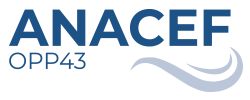|

Image: ANACEF / FIS
Spanish and EU Government Leaders Discuss Current State of Fishing Agreements with Third Countries in Las Palmas
 SPAIN
SPAIN
Wednesday, July 17, 2024, 07:00 (GMT + 9)
The ANACEF Producers Organization consolidates its annual conference, which this year celebrates its fifth edition, with a review of the fishing protocols signed by the European Union and the challenges they present for the fleet.
The ANACEF Fisheries Producers Organization will hold its annual debate day on July 18 at Casa África, in Las Palmas de Gran Canaria, which this year will focus on the "Current state of the EU's fishing agreements with third countries ”.

The European Union's fisheries agreements with third countries are fundamental for the sustainability and viability of a significant part of the European fleet, especially for those vessels that operate in international waters and depend on these agreements to access vital fishing resources. These agreements allow European fishermen to contribute to the supply of fishing products to the European market and support local economies, both in the countries of origin and in the third countries with which these agreements are established.
The event will feature the participation of leading experts and representatives of the fishing sector, both nationally and internationally, and aims to analyze and debate the current situation and challenges of the European Union's fishing agreements with third countries.

Program
More about the Organization of Fisheries Producers Anacef
The OPP43 or Organization of Fisheries Producers ANACEF (National Association of Cephalopod Fishing Freezer Vessel Owners) was established in 1993 and has its headquarters in Las Palmas, the most important port in the Central Atlantic. It was established with the aim of integrating and defending the interests of national shipowners oriented to fishing in West African fishing grounds.
This fleet currently operates in the waters of Morocco, Mauritania, Senegal, Gambia, Guinea Bissau, Guinea Conakry and the waters of the South Atlantic under the protection of sustainable fishing agreements between third countries and the EU or also thanks to private agreements.
The association's boats initially captured cephalopod species such as octopus or squid, but with the passage of time and the changes in fishing agreements, they have evolved in terms of catches towards pelagic and demersal species such as horse mackerel and toothfish.
Source: Anacef (Translated from the original in Spanish)

[email protected]
www.seafood.media
|



